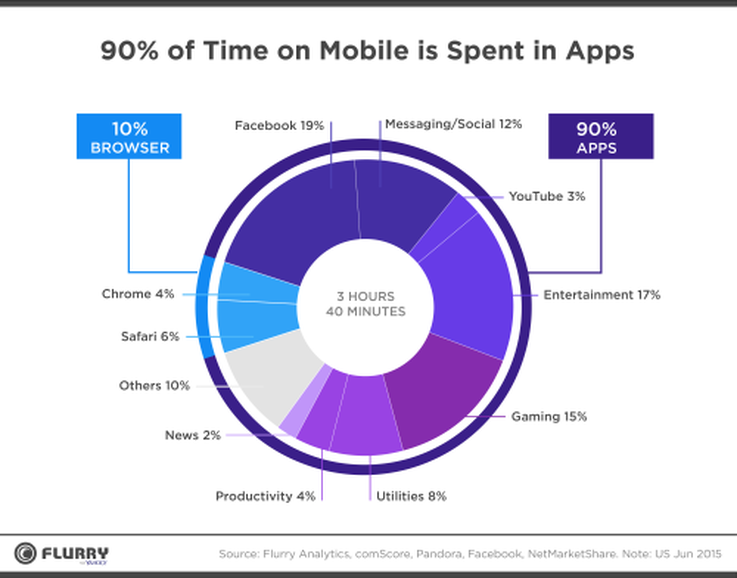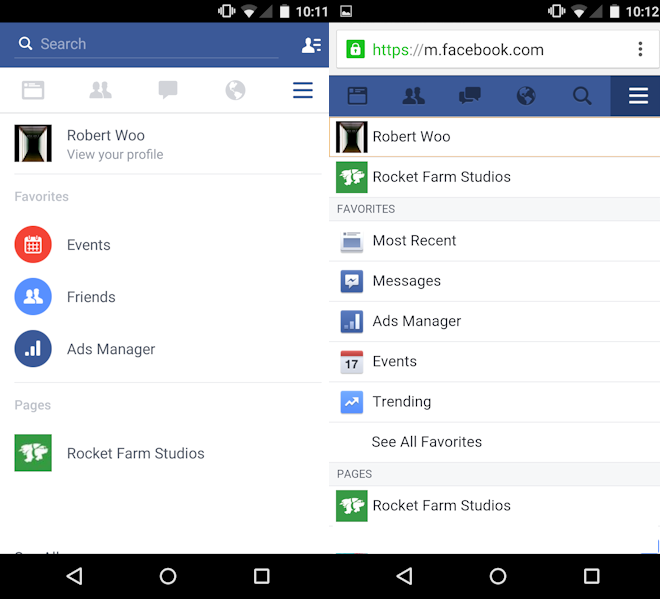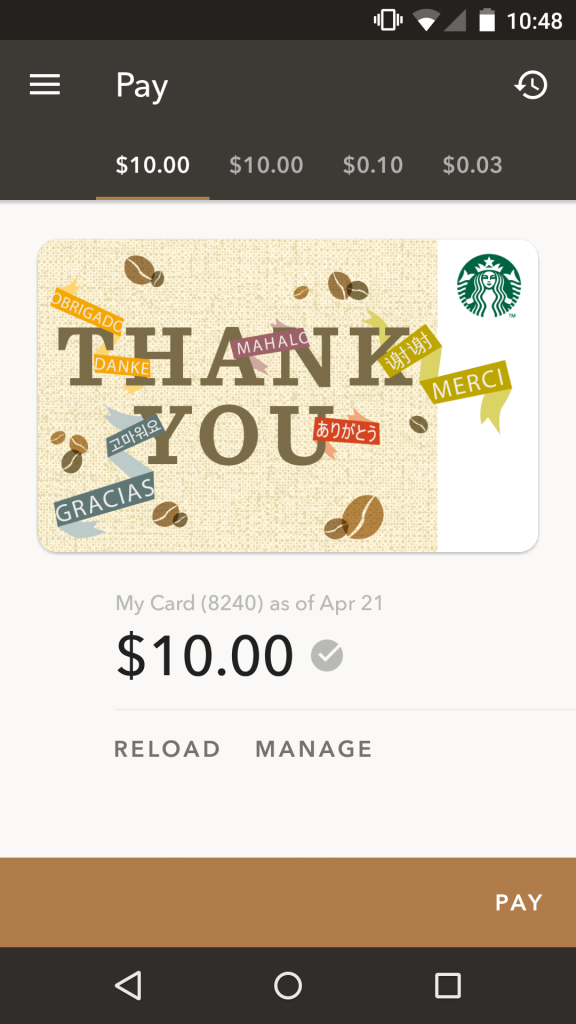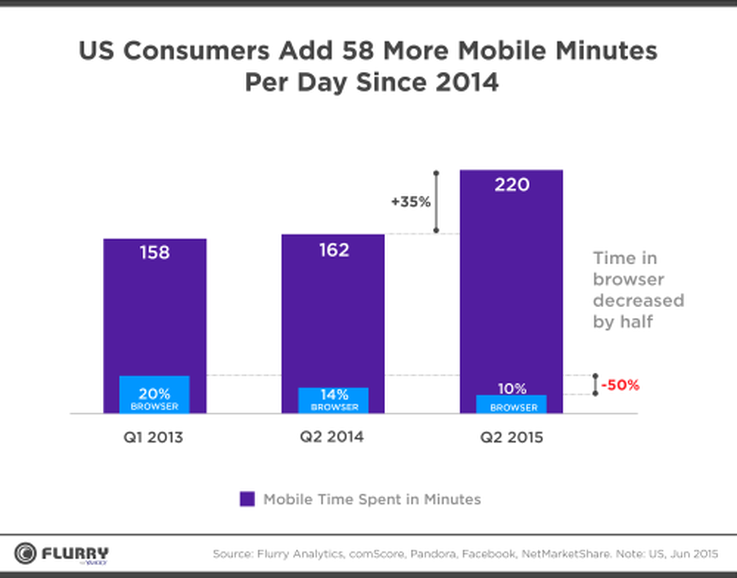Sep 1, 2015

Last week, Yahoo had its annual Mobile Developer Conference and shed some sobering light on the native vs web app debates, and it doesn’t look great for developers who have championed the advent of HTML5 on all our devices. More and more users are spending the majority of their time in native apps, despite the advances in mobile browser technology. How much more? Try 90% of mobile time going to apps:
 Source: zdnet.com
Source: zdnet.com
So what’s the deal? Well, here are four reasons why native apps are beating out web apps.
1. Native Apps Look and Perform Better
A post on qurksmode.org puts this succinctly:
“Technically, it’s simple. The web cannot emulate native perfectly, and it never will. Native apps talk directly to the operating system, while web apps talk to the browser, which talks to the OS. Thus there’s an extra layer web apps have to pass, and that makes them slightly slower and coarser than native apps. This problem is unsolvable.”
This is something users anecdotally know as well: we just know that the Facebook app works better than Facebook’s mobile web page. It may be because they haven’t allocated enough resources to the latter, but let’s be honest: it’s Facebook. They have the resources to make each as best as they can. Rather, the web app is worse because it just can’t match the technological benefits of a native app.
2. Developing Web Apps Isn’t Easier
The big pro to web apps was the idea that a company could create one site for all devices. Unlike native apps that have to create apps for iOS and Android individually (not to mention OS versions), web apps were supposed to take the pain out of the duplicate development process.
But in practice, that not the case. Developers have quickly realized that testing a web app on difference screen sizes was a tedious task, especially since different devices have different browsers by default (not to mention browser versions). So all of a sudden, your team is running into the same QA process they would have anyway with native apps, and for an inferior product since native apps are generally better for the user.
The team over at TheLadders went through this exact issue and went native with no regrets, and it’s a great practical lesson on what you’re really getting into choosing web apps over native.
3. Native Apps Are Maturing and Succeeding
We remember a time when native apps were so unreliable, we’d have bookmarks for the mobile sites saved in case Facebook or YouTube apps were acting up. That was a long time ago. Does anyone have mobile sites bookmarked anymore? Today, native apps have matured enough to not only be a reliable mobile experience, they’re the main way we even access many websites in the first place. And the reason for this is revenue.
Native mobile apps, done right, are leading the way for companies to monetize today’s fickle web users. Forbes just had a good article looking into two corporations seeing great success with their apps: Starbucks and Under Armour. For the former, 18% of all transactions stem from mobile. For the latter, they’re gaining more than 100,000 new users per day.
We are seeing app success stories like this all the time. How many success stories do we see of corporations with their web apps? Well, we couldn’t find any recent examples. Companies have wholeheartedly embraced native apps and making it a core part of their business (as they well should!), because it allows for a customer experience that they can control end-to-end. If web apps want this sort of development attention, it needs to put up some clear success stories that native apps can’t replicate.
4. Users Have Made Their Choice
Remember when VHS won out over the technically superior Betamax? Or when Blu-Ray won out over HD-DVD? While companies don’t have to really choose native apps over mobile apps in quite the same way as these historical format wars, the customer will. A user’s going to access Facebook in a consistent way, and once that choice is made it’s going to take a huge disruption in technology to change his or her behavior. Going back to Yahoo’s conference, another statistic cited was that “US consumers spent 35% more time on their mobile devices than the same time period last year.”
So people are spending more time on their mobile devices and almost all that time is going to apps. We’ve made up our minds. Betamax is dead. Developers need to realize that the market has chosen its preference and now must cater to its desires. Sure, there are signs of life for web apps with the Open Web Platform and such, but let’s face it: native apps have already won. Sorry guys. Maybe HTML6 will have a silver bullet.

















